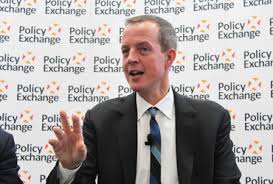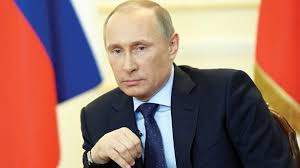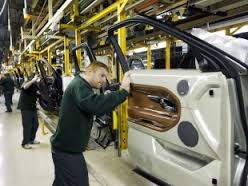Attitudes need to change amongst parents with regard to Apprenticeships in the UK
The skills minister Nick Boles says parents and teachers often have “outdated attitudes” towards apprenticeships.
Nick Boles said apprenticeships should be regarded as a clear alternative to a full-time university place.
It was just a shame he could not be bothered to be at the Voice of the Apprentice Conference last week, which shows where his loyalty to this cause probably are.
Anyway marking national apprentice week, he said he wanted to promote the idea that apprentices could “go as far as they want to go”.
Labour has also been highlighting the issue, saying it would introduce a “gold standard” for apprenticeships.
Mr Boles believes apprenticeships have an image problem with older generations – teachers and parents – because they were brought up at a time when university was the clear choice for able pupils.
 But he said young people were increasingly seeing them as a viable career path, partly as an “unintended consequence” of university tuition fees.
But he said young people were increasingly seeing them as a viable career path, partly as an “unintended consequence” of university tuition fees.
“People are making quite hard-headed pragmatic judgements,” he said.
“I certainly think that when I was growing up, even though many fewer people went to university, there was this sense that if you could go to university, then of course you would – it was automatic, the government basically paid for it and it was the thing you would do if you could.
I would like to get to a place where there’s a choice between two routes, both of which could take you as far as you want to go – one of which is a full-time university degree, the other is an apprenticeship”
“I think now it’s changed for the next generation, but there is a lag, and where the attitude problem remains is with parents, and with teachers.”
He said there was still a perception that apprenticeships were for “mechanics and brickies”.
And while he was quick to stress these were important, he said they were by no means the whole picture.
“You can now become an apprentice lawyer, an apprentice accountant, or an apprentice journalist, and I think that perception is taking some time to change,” he said.
Mr Boles acknowledged the UK lagged behind other countries – notably Germany – where apprenticeships are regarded far more positively as routes into trades and technical professions.
He said we could learn much from Germany, but it would not fit “our economic model” in its entirety.
“I would like to get to a place where there’s a choice between two routes, both of which could take you as far as you want to go – one of which is a full-time university degree, the other is an apprenticeship,” he said.
The minister was speaking during a visit to Holition, a London-based creative technology company, which specialises in supplying retailers.
He was shown a “virtual mirror” the company has developed that allows shoppers to see what they would look like in selected clothes without having to change into them, or how make-up might look without having to actually put any on.
To my uneducated eye, it appeared to work by magic.
Thomas Monkman, who is 20 years old, could be described as a poster boy of the government’s apprenticeship campaign.
He joined the company as an 18-year-old, and three weeks into his 13-month apprenticeship was handling an important project for Hugo Boss.
“I wanted to get straight into programming and this apprenticeship was a great way to do that.
“I wanted to see how programming is actually used in the real world, rather than in theory,” he told me.
“Everyone is just told to go down the university route, apprenticeships are not even seen as a viable alternative.
“But it was a fairly easy choice for me – I wanted learn practically, rather than academically.
“Of course there should be a balance – university is the best option for some people.
“But I think apprenticeships should be more widely known about and used.”
His boss, Jonathan Chippindale, describes himself as “a huge advocate” of apprenticeships.
“We can find talented people, but they can’t necessarily do what we need them to do – apprenticeships give us the chance to mould people into what we need,” he said.
“We had quite high minded – almost philanthropic – reasons why we wanted to take on an apprentice.
“But we very quickly realised it was a sound investment.
“We ended up with someone specifically trained to fit into our business.”
But Mr Chippindale also recognises that the apprentices also need to benefit.
“We had to prove to him that we were a better career choice for him than going to university.”
“Thomas joined at a busy time, and we threw him in at the deep end.
“Three weeks into his apprenticeship he was doing a project for Hugo Boss by himself.”
Labour have also been marking national apprentice week, with the shadow business secretary Chuka Umunna outlining his party’s plans.
He said he wanted to see more “high-quality apprenticeships, and routes on to technical degrees”.
He said he wanted to see the same number of school leavers going into apprenticeships as go to university by 2025.
But he said in order to “ensure genuine parity of esteem between academic and vocational pathways”, quality should not be sacrificed for quantity, and that expansion should be “based on a relentless commitment to excellence”.
Commented, sourced and edited by Ewart Dudko-Richardson
uk.linkedin.com/pub/ewart-richardson/11/288/429/
@GuvnorMedia_ or @EwartRichardson
Or Watch at www.biztobiztv.com
Also Join our Group Biz To Biz TV on LinkedIn
Got a news story for us? Contact us below at :-
Tel: +44 (0)845 0943274
Email : info@biztobiztv.com
The Cost of Supporting your currency when it collapses around the world
This is the cost of supporting your currency when it is collapsing all over the world markets, the Russian central bank has revealed.
In the past year, the bank spent $76bn and 5.4bn euros as it repeatedly bought roubles on the foreign exchanges across the world.
The Russian currency has been under sustained pressure because of Western sanctions over Ukraine and because of the falling price of oil.
In the event, during 2014, the rouble dropped by 41% against the dollar and by 34% against the euro, which is a colossal amount.
Add to that the restrictions on the importation of foreign food, the severe fall in the rouble’s value helped to push up the official Russian inflation rate to 11.4% by the end of the year.
 All because of what can only be seen as “macho” politics.
All because of what can only be seen as “macho” politics.
Which means for the Russian people prices rose by 1.3% in November and then by 2.6% in December alone, according to the country’s Federal Statistics Service.
The biggest bouts of so-called “intervention” on the foreign exchanges, aimed at slowing the rouble’s slide, came in March when Russia annexed Crimea, and then in October and December when the fall in the price of oil was particularly steep.
The rouble lost nearly a quarter of its value in just two days – 15 and 16 December – when Russian citizens panicked and tried to convert their money into foreign currencies.
As a result, the central bank said that its reserves of foreign currency during December stood at less than $400bn, their lowest level for five years.
The net effect of these problems has been to tip the Russian economy into recession.
It shrank by 0.5% in November, which was the first monthly fall in national economic output since October 2009.
And the government has forecast a fall in output of nearly 1% during the whole of 2015.
We suspect that that is a conservative value as the price of oil continues to fall and that see’s no sign of rising in the short term, this will only deepen the recession in Russia.
Commented, sourced and edited by Ewart Dudko-Richardson
uk.linkedin.com/pub/ewart-richardson/11/288/429/
@BizToBizTV or @EwartRichardson
Or Watch at www.biztobiztv.com
Also Join our Group Biz To Biz TV on LinkedIn
Got a news story for us? Contact us below at :-
Tel: +44 (0)845 0943274
Email : info@biztobiztv.com
For advertising and sponsorship enquiries contact us below at :-
Tel : +44 (0)845 0943274
Email : info@guvnormedia.co.uk
Manufacturing in the UK Slows on the back of poor Eurozone growth – Where now for Europe?
As Biz To Biz TV News economists have been predicting for the last few months manufacturing activity in the UK hit a three-month low in December.
The Markit/CIPS Purchasing Managers Index was at 52.5 for the month, compared with 53.3 in both October and November. A figure above 50 suggests that the sector is growing.
However, overall UK manufacturing activity was strong in 2014, it said.
However, it is now on the slide because of the effects of manufacturing growth in the eurozone at close to stagnation in December.
“The latest survey provides further evidence of the ongoing slowdown in the UK manufacturing sector, with output and new order growth easing to their second-weakest rates during the past year-and-a-half.” said Markit senior economist Rob Dobson in agreement with the predictions made by Biz To Biz TV News economists.
“The main weak spot remains exports, with overseas new order inflows stagnating amid weaker economic growth in key markets and the ongoing lethargy of the euro area,” he added.
 Despite the slowdown in activity, 2014 remained a strong year for UK manufacturing, Mr Dobson said.
Despite the slowdown in activity, 2014 remained a strong year for UK manufacturing, Mr Dobson said.
“The positives to come out of the December readings are the continued growth, further solid increases to workforce numbers, a supportive domestic market that is driving new contract wins and the broad-base of the upturn across the consumer, intermediate and investment goods industries,” he said.
In addition, UK manufacturing employment rose for the 20th month in a row during December.
Manufacturing in the Eurozone was “near-stagnant” in December, with a final reading of 50.6, Markit said
December saw the slowest output growth for a year-and-a-half.
Meanwhile, the average eurozone reading for the final quarter of 2014, 50.4, indicated the worst growth in the sector for more than a year.
“Eurozone factory activity more or less stagnated again in December, rounding off a year which saw an initial, promising-looking upturn fade away and stall in the second half of the year,” said Chris Williamson, chief economist at Markit.
“The weakness of factory output, combined with the subdued service sector growth signalled by the flash PMI, suggests the eurozone economy grew by just 0.1% in the fourth quarter.”
The crisis in Ukraine and faltering confidence in the ability of policymakers to revive the area’s economy seem to have prompted companies to become more risk averse and to pull back on expansion plans, Mr Williamson added.
What worries us at Biz To Biz TV News is that the political leaders and the senior economists actually seem to have no “plan b” to revive the Eurozone, which says as much about those leading Europe as anything else.
As my old Lecturers might say “it simply isn’t good enough”
Commented, sourced and edited by Ewart Dudko-Richardson
uk.linkedin.com/pub/ewart-richardson/11/288/429/
@BizToBizTV or @EwartRichardson
Or Watch at www.biztobiztv.com
Also Join our Group Biz To Biz TV on LinkedIn
Got a news story for us? Contact us below at :-
Tel: +44 (0)845 0943274
Email : info@biztobiztv.com
For advertising and sponsorship enquiries contact us below at :-
Tel : +44 (0)845 0943274
Email : info@guvnormedia.co.
Russian Rouble Collapses and the slide won’t stop!
The rouble collapsed more than 10 percent for the second day on Tuesday and recorded its worst fall since the Russian financial crisis in 1998 as confidence in the central bank evaporated after an ineffectual overnight rate hike.
The question is where now for the Russian economy?
The rouble opened at about 10 percent stronger against the dollar following the overnight 650-basis-point rate hike, however, it reversed gains in early trade and fell to record lows, pushing losses this year against the dollar to over 50 percent.
Which is not sustainable in the long term.
 Today at 11:37 GMT, the rouble was down over 11 percent against the dollar after dipping past 74 roubles per dollar for the first time. It was more than 15 percent weaker versus the euro at 92.99. It has also been dragged lower against both currencies by falling oil prices, increasing market panic and Western sanctions over Ukraine.
Today at 11:37 GMT, the rouble was down over 11 percent against the dollar after dipping past 74 roubles per dollar for the first time. It was more than 15 percent weaker versus the euro at 92.99. It has also been dragged lower against both currencies by falling oil prices, increasing market panic and Western sanctions over Ukraine.
Russia’s dollar-denominated RTS share index at one point was down as much as 15 percent, extending similar losses from Monday. Russian sovereign dollar bonds fell and money market rates jumped.
President Vladimir Putin has blamed both the slide in oil and the rouble on speculators and the West. Though much of this is his own fault by focusing on expansion interests rather than on his own countrymen and economy. A weak rouble poses a major test for Putin, since his popularity in part depends on his reputation for guaranteeing prosperity and stability, and it stokes inflation.
“The central bank will have a very hard time stabilising the rouble as long as the sharp sell-off in oil prices continues,” Vladimir Miklashevsky, an economist at Danske Bank, said in a note.
Brent Crude prices fell over $1 per barrel on Tuesday to below $60 for the first time since July 2009. That hurts the outlook for Russia’s oil-dependent economy, which the central bank says is likely to contract early next year.
This in the short term is unlikely to change as the entire world economy look drive its way out of stagnation.
The Rouble’s fall also reflects declining confidence in the central bank, whose Governor Elvira Nabiullina now appears powerless to stop the currency’s slide. The market ignored televised Nabiullina comments that the rouble was undervalued on Tuesday.
“If such an interest rate rise didn’t impress the market, then they (the central bank) have left the option of interventions of $10 billion a day. They are in (the market) every day,” said Natalia Orlova, chief economist at Alfa Bank.
 The central bank has spent over $80 billion defending the rouble so far this year, including more than $8 billion since it floated the rouble in November. The country still has reserves of around $416 billion.
The central bank has spent over $80 billion defending the rouble so far this year, including more than $8 billion since it floated the rouble in November. The country still has reserves of around $416 billion.
Oil prices and the Western sanctions imposed on Russia for its role in the Ukraine crisis have been the main force behind the rouble’s demise, but on Monday, analysts said, the currency was caught up in sheer panic.
“This was obvious proof that what now rules the Russian currency is not oil, or even waiting for it to move, but panic fuelled by a large number of rumours about the return of our country to the “98-year” regime,” said Alena Afanasyeva, a senior analyst at Forex Club in Moscow.
In 1998, the rouble collapsed within a matter of days, forcing Russia to default on its debt. Although Russia’s public finances and reserves are much healthier than in 1998, analysts say the country is on the brink of a full-blown currency crisis yet again.
The question is is Russia ready to join the world economy?
Commented, sourced and edited by Ewart Dudko-Richardson
uk.linkedin.com/pub/ewart-richardson/11/288/429/
@BizToBizTV or @EwartRichardson
Or Watch at www.biztobiztv.com
Also Join our Group Biz To Biz TV on LinkedIn
Got a news story for us? Contact us below at :-
Tel: +44 (0)845 0943274
Email : info@biztobiztv.com
For advertising and sponsorship enquiries contact us below at :-
Tel : +44 (0)845 0943274
Email : info@guvnormedia.co.uk

Recent Comments